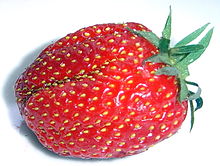Two studies about Vitamin D. From Science Daily:
Vitamin D increases breast cancer patient survival, study shows
Breast cancer patients with high levels of vitamin D in their blood are twice as likely to survive the disease as women with low levels of this nutrient, report University of California, San Diego School of Medicine researchers in the March issue of Anticancer Research.
In previous studies, Cedric F. Garland, DrPH, professor in the Department of Family and Preventive Medicine, showed that low vitamin D levels were linked to a high risk of premenopausal breast cancer. That finding, he said, prompted him to question the relationship between 25-hydroxyvitamin D -- a metabolite produced by the body from the ingestion of vitamin D -- and breast cancer survival rates.
Garland and colleagues performed a statistical analysis of five studies of 25-hydroxyvitamin D obtained at the time of patient diagnosis and their follow-up for an average of nine years. Combined, the studies included 4,443 breast cancer patients.
Women in the high serum group had an average level of 30 nanograms per milliliter (ng/ml) of 25-hydroxyvitamin D in their blood. The low group averaged 17 ng/ml. The average level in patients with breast cancer in the United States is 17 ng/ml.
A 2011 meta-analysis by Garland and colleagues estimated that a serum level of 50 ng/ml is associated with 50 percent lower risk of breast cancer. While there are some variations in absorption, those who consume 4,000 International Units (IU) per day of vitamin D from food or a supplement normally would reach a serum level of 50 ng/ml.
From Science Daily:
Vitamin D deficiency may compromise immune function
Older individuals who are vitamin D deficient also tend to have compromised immune function, according to new research accepted for publication in the Endocrine Society's Journal of Clinical Endocrinology & Metabolism (JCEM).
"Our data suggest vitamin D may be involved in maintaining the health of the immune system as well as the skeletal system," said one of the study's authors, Mary Ward, PhD, of the University of Ulster in Coleraine, U.K.
The observational study of 957 Irish adults who were at least 60 years old examined vitamin D levels as well as biomarkers of inflammation. Participants who were vitamin D deficient were more likely to have high levels of these biomarkers, which are linked to cardiovascular disease and inflammatory conditions such as multiple sclerosis and rheumatoid arthritis.

 Please note: 500 g (or half a kilo) is 1 pound or about 3 1/3 cups of whole strawberries. From Science Daily:
Please note: 500 g (or half a kilo) is 1 pound or about 3 1/3 cups of whole strawberries. From Science Daily: Acetaminophen was the one nonprescription medication that for decades pregnant women thought was safe to take. Looks like not any more - a study found that taking acetaminophen during pregnancy was associated with hyperkinetic disorder and ADHD at age 7. And the longer it was taken during pregnancy, the stronger the association. From Science Daily:
Acetaminophen was the one nonprescription medication that for decades pregnant women thought was safe to take. Looks like not any more - a study found that taking acetaminophen during pregnancy was associated with hyperkinetic disorder and ADHD at age 7. And the longer it was taken during pregnancy, the stronger the association. From Science Daily: